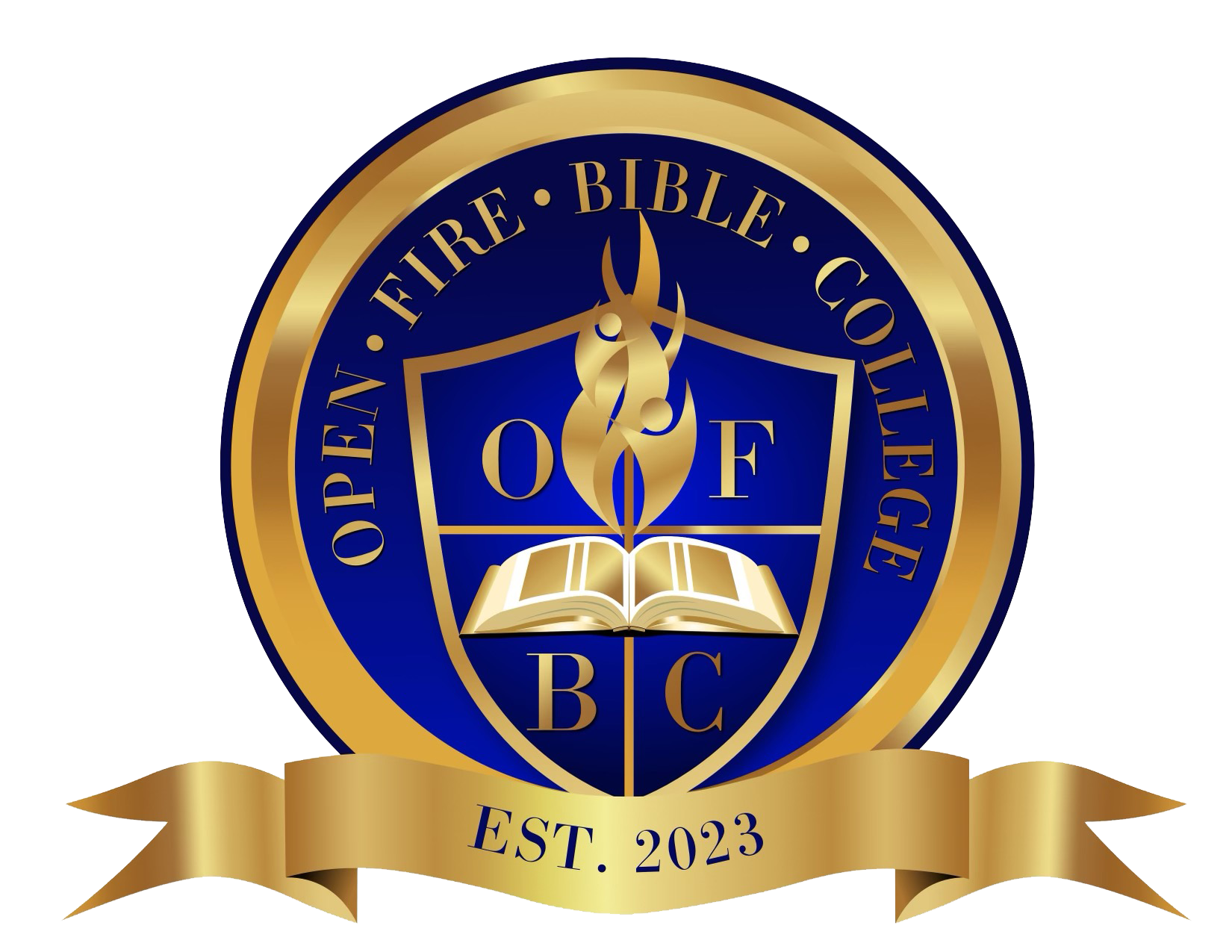know us better
About
why choose us
About Us
Open Fire Bible College was established in the year 2023 by the leaders and visionaries of Open Fire International Fellowship (OFIF) —Apostle Dr. Lincoln Coffie and Pastor Dr. Apryl Coffie. For over a decade, they have dedicated their lives to ensuring that the members of Open Fire are equipped with the Word of God and are empowered to manifest the light and glory of God in the earth.
As of 2023, the spiritual empowerment and enlightenment that are consistent with the transformative teachings at Open Fire International Fellowship, have now been made available to the global community of Christian believers through Open Fire Bible College. O.F.B.C is built on sound doctrine and all staff and faculty are committed to fostering an atmosphere that is conducive to the presence of the Father, Son and Holy Spirit.
We are also committed to creating a safe and highly-effective learning environment where students can freely engage with the Word of God under the guidance of a trusted faculty who themselves, are principled, lifetime students of the Word. We endeavor for all of our students to discover, develop and effectively utilize their God-given gifts, talents and abilities locally, nationally and internationally.

Our Mission
Our mission is to inspire, empower and educate students to attain biblical competence, achieve spiritual enlightenment, access divine wisdom and uncover revelatory truths about the Father, Son and Holy Spirit, thereby equipping them to serve humbly, behave responsibly and lead graciously while boldly fulfilling the mandate which Christ issued to us all. All courses, programs, activities and day-to-day operations are inspired by the Bible—God’s Holy Word. “And He said to them, “Go into all the world and preach the gospel to all creation.” – Mark 16:15 (AMP)
Our Vision
Open Fire Bible College is a diverse Christ-centered learning community dedicated to the spiritual development, empowerment and advancement of the kingdom of God.
our academics
Our Online Courses
U.S. Department of Education Accreditation
USDE accreditation is not necessary for the theological degrees in which we offer. Individuals seeking employment in government-licensed positions such as public school teachers, state-licensed psychologists or psychiatrists, and non-church-related counselors will more than likely need USDE accredited degrees. Generally speaking, people working in ministry positions do not need a USDE accredited degree. If you are pursuing education at RKBC with the intent of obtaining employment or for some other reason, you should check with that organization BEFORE applying for enrollment in RKBC. RKBC assumes no liability of any kind.


